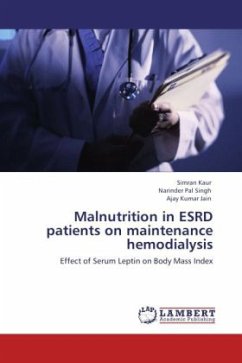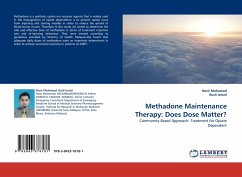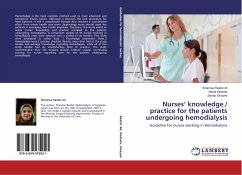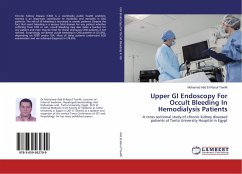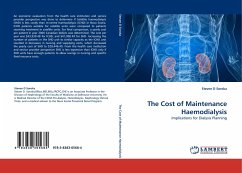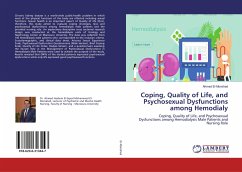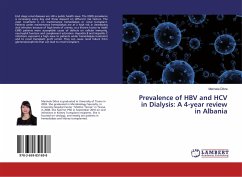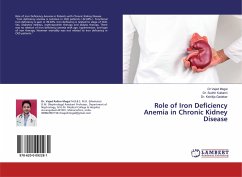End-stage renal disease (ESRD) is an emerging healthcare problem worldwide, but is fairly acute in developing countries like India. Malnutrition is one of the major hurdles in long term survival of dialysis patients, and it is recommended to initiate dialysis before malnutrition sets in. Serum Leptin is increased in ESRD and maybe responsible for Anorexia-Malnutrition syndrome. Studies by researchers across the globe have produced evidence of both 'in-favor' and 'against' the topic of increase in Serum Leptin causing malnutrition in end-stage renal disease (ESRD) patients on maintenance hemodialysis. This book documents the original study by the authors to assess the correlation of Serum Leptin with Body Mass Index (a biomarker for malnutrition) in ESRD patients on maintenance hemodialysis in India.
Bitte wählen Sie Ihr Anliegen aus.
Rechnungen
Retourenschein anfordern
Bestellstatus
Storno

